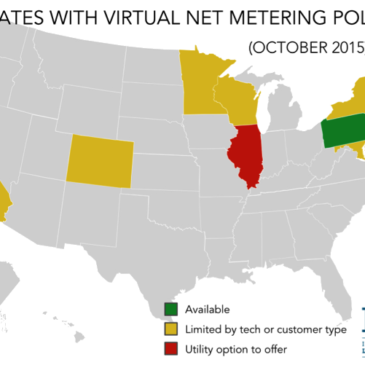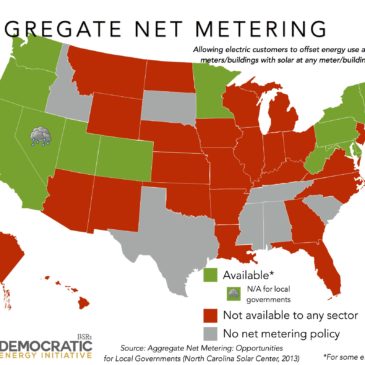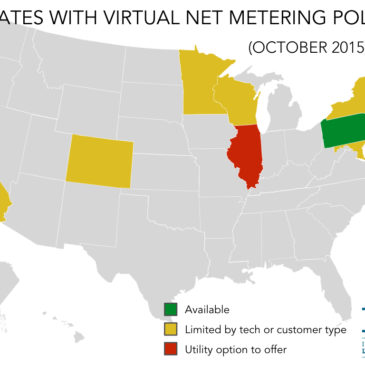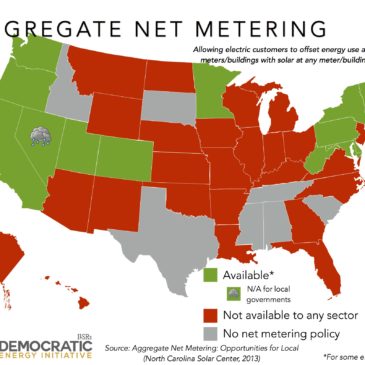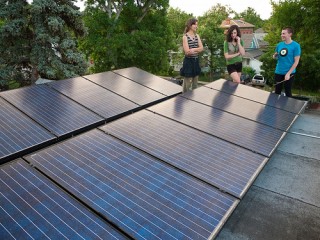Virtual Net Metering
Net metering is a common distributed renewable energy policy in the United States, allowing individuals to “turn back” their meter (and reduce their electric bill) by generating on-site electricity. But utility accounting systems typically prevent people from sharing the output from a single, common solar or wind project. Virtual (or group or neighborhood) net metering (now … Read More



